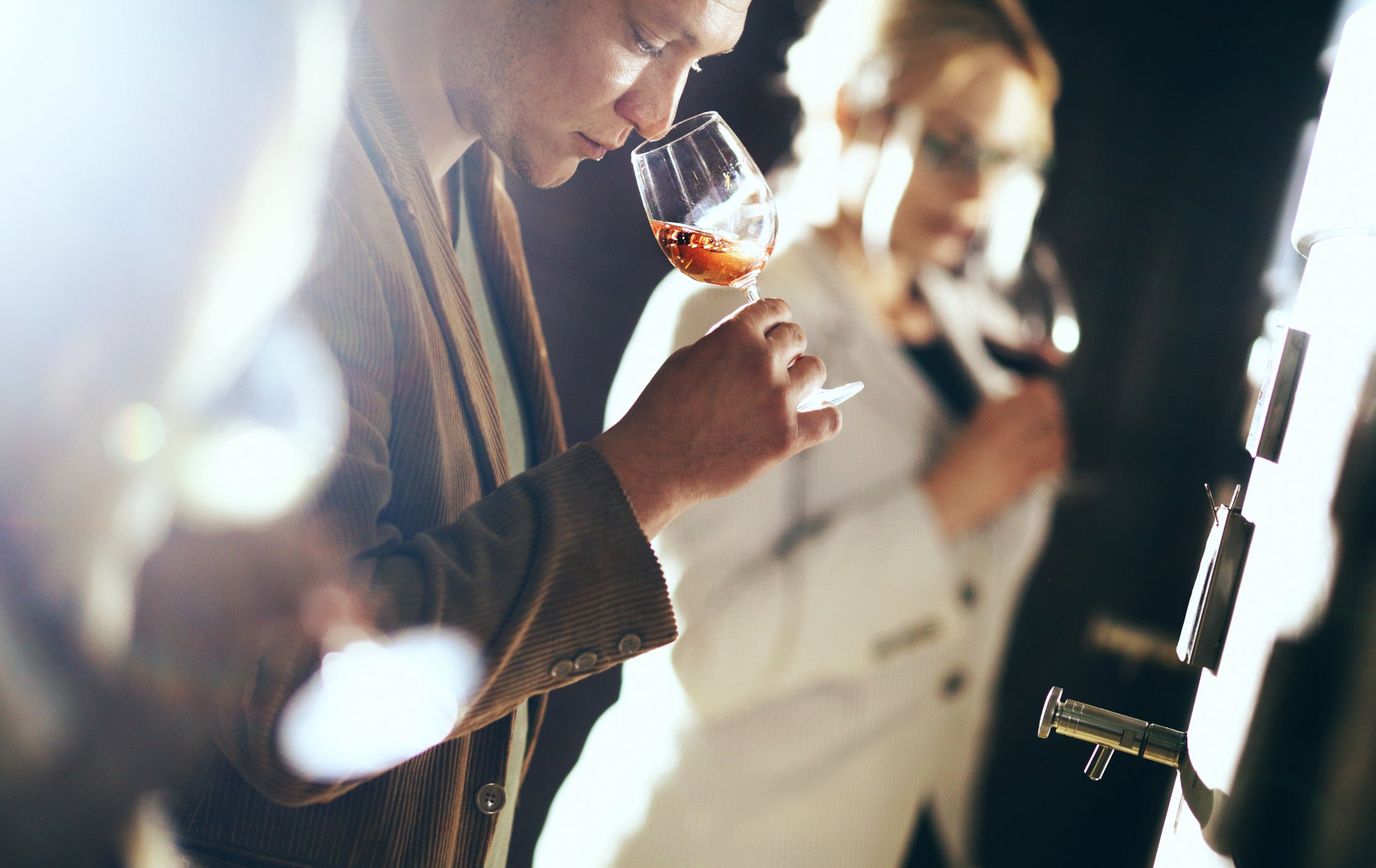An acute sense of smell is vital to a wine critic, and it can be catastrophically disrupted by wafts of perfume (or worse). Victoria Moore holds her nose and begs her fellow tasters to lay off the cologne
Years ago, I caught the bell-like tones of the late wine and food writer Pamela Vandyke Price on an ‘out of the archives’ radio programme. She was talking about alien smells in wine tastings. ‘The gentlemen all know I wear Chanel No. 5 so they know to taste off,’ said Vandyke Price, unrepentantly. ‘Off’ was pronounced ‘awwff’. It was a voice from another age, but it’s often in my head as I work my way around a room filled with tables of wine and other people.
I always advise (beg) wine tasting guests not to arrive trailing clouds of fragrance. But how much does it really matter? Not to the person wearing it, that’s for sure. In all our senses, humans are wired to pay more attention to novelty. In the visual field, our eyes rapidly pick out movement. If you have ever tried to sleep while students next door are throwing a loud, late party then you’ll know that when it comes to sound, it’s not so much the 2am racket of Tito Puente’s Oye Cómo Va that drives you insane (once it gets going, you can sort of block it out) so much as the auditory jolt between tracks.
When it comes to olfaction, it’s a similar story. The perfume-wearer adapts to the smell of his or her own fragrance. But for others, the distraction level as Christian Dior’s Eau Savage (I feel as if quite a lot of French growers wear this, or something like it) or Escentric Molecule 01 (so many female British tasting attendees) wafts around the room can be extreme.
As with everything in life, though, how much it distracts depends on the individual. We are all differently attuned to specific smells. In January, I took the brilliant perfumer Kyle Fearn, who owns his own brand, Redolescent, to a Burgundy tasting run by the importer Flint Wines.
Fearn was interested in learning about wine and I couldn’t think of a better place to start. His observations as we tasted together were brilliant but, every so often, I’d lose him. His attention – sometimes his actual self – would bounce across the room towards any particularly intriguing scent, usually a cologne that I hadn’t even noticed, and he’d beam with delight.
As it happens, the hedonic valence of smells – whether we are drawn towards or repelled by certain scents – is thought to be one of the keys to understanding this most mysterious of senses. In his TED Talk on the science of disgust, the psychologist David Pizarro presents research showing that if you make people feel disgust ‘their attitudes shift towards the right end of the political spectrum.’ In one experiment, for example, the psychologist Simone Schnall found that exposing participants to a foul smell ‘can increase the severity of moral judgments relative to controls.’ What could this mean for my wine tasting preferences if, for instance, I’m tasting in a room (as I did recently) with a powerful smell of dirty hair? Will I be more inclined to reject any overtly funky natural wines and turn towards anything tannic and left bank from Bordeaux?
I’m not being entirely serious. But it’s clearly the case that anyone drinking or tasting wine in a room in which the smell of the wine has to compete hard with something else – food or overpowering perfume or whatever – is not going to be able to taste the wine properly. I can think of circumstances when this might be a bonus. In the meantime, if you’re going to a professional wine tasting, please don’t wear fragrance.
And if you think this request makes me over-sensitive then consider the perfumer Edmond Roudnitska, the man who created Eau Sauvage. Back in the seventies, Roudnitska received a visit from Jean-Claude Ellena, who would go on to create Bulgari’s Eau Parfumée au Thé Vert. In his book, The Diary of a Nose, Ellena tells how Roudnitska opened the door of his home and recoiled. ‘You reek of washing powder! Go home and come back tomorrow in clothes that have been aired.’
Victoria Moore is a journalist and the author of The Wine Dine Dictionary, a food and winematching guide that won the André Simon Special Commendation award and has been hailed as a ‘bible’ for wine lovers. She writes the wine column for the Saturday Telegraph magazine and shares many of her bottle recommendations on Instagram as @how_to_drink. With a post-graduate diploma in psychology, she loves to explore the mind of the drinker and has a particular fascination with the human sense of smell.




